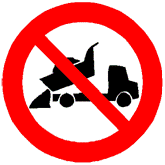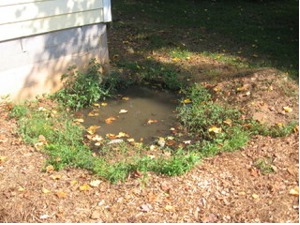DHHS → MeCDC → Public Health Systems → Local Health Officers → LHO Training → Section 4 → Likely Complaints(Continued)
Local Health Officer Training
Section 4: Appointments and Duties
Likely Complaints(Continued)
- Removal of dead animals: (domesticated - such as cow, horse, fox, rat, etc., includes fowl). This is covered under Title 22 M.R.S.A. §1562 - Depositing of Dead Animal Where Nuisance. Unless there is a municipal ordinance, the only remedy is going to District court where the offender must be fined $10 to $100, or face imprisonment for not more than 3 months. NOTE: Undomesticated animals suspected of having rabies are dealt with by the Department of Inland Fisheries and Wildlife, unless the animal is a wolf hybrid, in which case the Animal Control Officer is responsible. Maine law, Title 22 M.R.S.A. §1313-A is the associated law. https://janus.state.me.us/legis/statutes/22/title22sec1562.pdf (new window)
- Unlawful dumping: This is covered under Title 30-A M.R.S.A. §3352 - Prohibited dumping. Similar to the previous example, unless there is a municipal ordinance, the only remedy is going to District court where the offender must be fined $10 to $100. The municipality can recover all costs. https://janus.state.me.us/legis/statutes/30-A/title30-Asec3352.html (new window)

- Malfunctioning sewage system: This is covered by Title 30-A M.R.S.A. §3428 (PDF) - Malfunctioning domestic wastewater disposal units; abatement of nuisance. Municipal Officials (generally the Local Plumbing Inspector with the assistance of the LHO) can either issue an abatement order or apply for a court order to require the owner to reimburse the town for repairs to the system.
- Landlord tenant issues: These issues are covered by Title 14 M.R.S.A. §6021 which contains an "implied warranty" and "covenant of habitability". Remedies to these problems may sometimes be expedited by resolving it similarly to one of the other complaints already discussed, such as the dangerous building. https://janus.state.me.us/legis/statutes/14/title14sec6021.html
As you can tell from these examples, the LHO investigates all types of complaints and may enforce, as appropriate, his or her town's ordinances or state law. However, when exercising this authority the LHO/town must follow the "due process" procedures and notice requirements.
Due process means the government must act fairly and in accord with established rules using fair procedures. The 5th Amendment of the U.S. Constitution says that the government must use fair procedures. Fair procedures however, mean little if used to administer unfair laws. The states have the power to protect and promote the public health, safety, morals, and general well-being of all people. This power is called the police power, and the states may not use it in violation of due process. Due Process Diagram (PDF).


